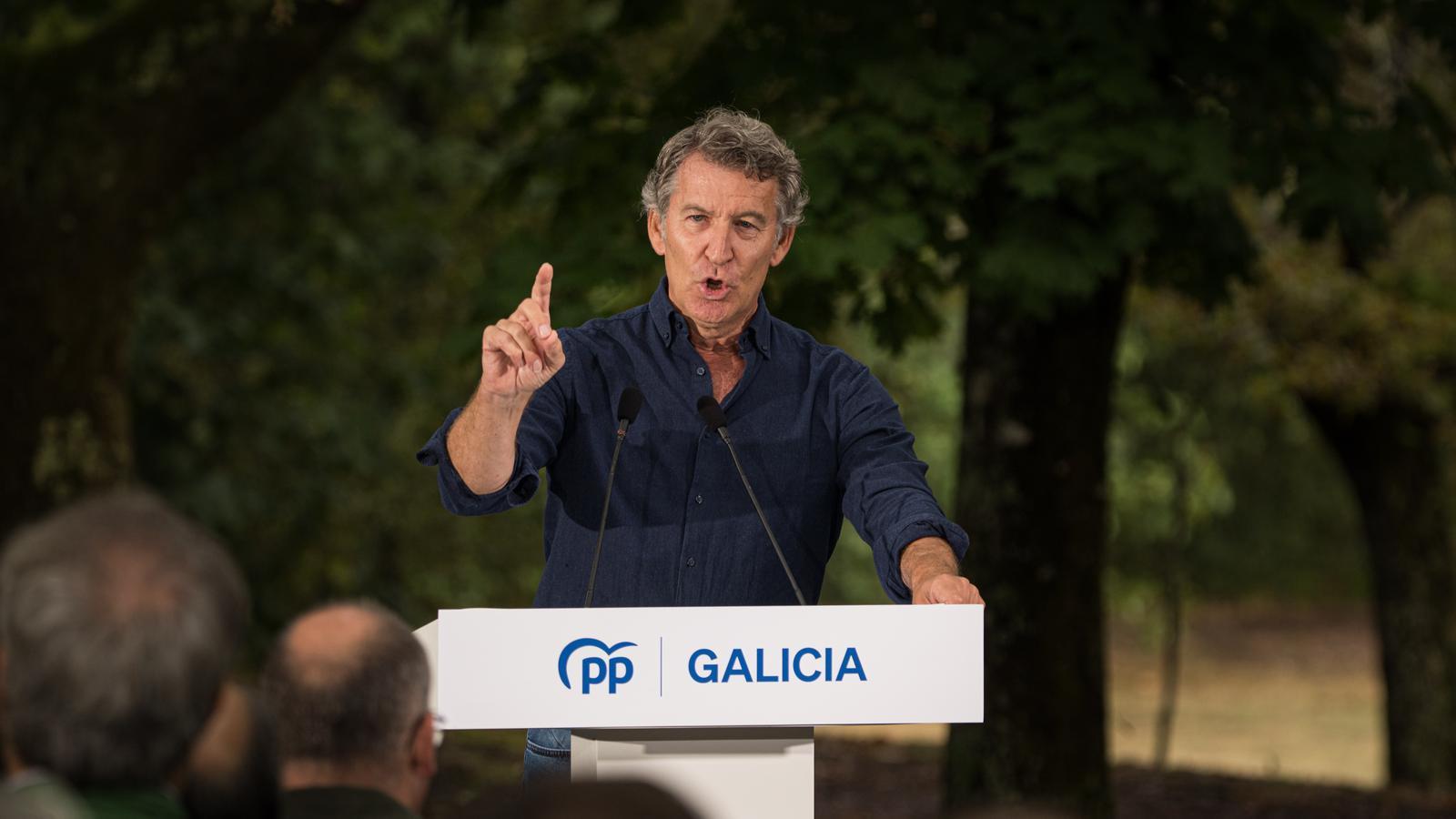Feijóo calls it a "failed state" and blames Sánchez.
The PP criticizes the PSOE for handling the fires, while the Socialists criticize the PP for their "inability" to manage regional powers.


BarcelonaAfter the summer break, the political year has resumed this Sunday with the same dynamic in which the previous one ended: maximum tension and harsh accusations between the PP and the PSOE with an electoral climate despite the fact that the socialists have already warned that new state elections will be held four years after the 23-J, on the 20-Ju, on the 20-Ju, Núñez Feijóo, has given the political starting signal with an event in the Galician town of Cerdedo-Cotobade in which he has even justified the growing rumor that speaks of a "failed state", following the management of Natural disasters such as the fires that have ravaged the Peninsula this August"Those who use misfortunes and communities to shrug off responsibility are the ones to blame for Spain being talked about as a failed state," he stated, referring to Spanish President Pedro Sánchez and his government.
However, despite justifying this expression, he distanced himself from it, since "there is no need to change the architecture of the State": "We are not [a failed state], what happens is that there is a failed central government," he clarified. Accompanied by the Galician President, Alfonso Rueda, and with the head of the Andalusian government, Juanma Moreno Bonilla, in the audience, Feijóo led a wave of criticism against Sánchez for the fact that "the government finds someone to blame for everything and takes responsibility for nothing," while praising the work of the "coordinated" communities. In any case, despite the accusations of alleged state "dereliction of duties"—despite the more than ten thousand personnel provided—fire management responsibilities fall to the regional governments, and Vox has recently insisted that total recentralization is necessary.
However, PSOE deputy spokesperson Enma López asserted the opposite in a media interview. "When the PP has to manage an emergency, it fails, and when it fails, all it does is polarize," she emphasized. In her opinion, the PP "is never there at first," and "when the crisis hits and they're incapable of doing anything, they're left with the noise and blaming the PSOE" for its "disloyal" behavior. López argued that "the PSOE government is resolving the crisis once again" and criticized the PP regional presidents for requesting "disproportionate resources when they had their own resources "unmobilized." "They're asking for twice as many firefighting resources as the entire EU," he argued. He did emphasize the importance of "more frequent fires," although he doesn't believe the PP will join in.
In fact, Feijóo questioned any kind of state pact when "they broke with foreign or defense policy" and the state budget was not approved. The conservative politician has portrayed a state executive that is "concerned about not losing the narrative" and points out that "the blame for what happens in Spain always lies with the PP, the PP-led regions, or a certain Feijóo." He also lamented that it was necessary to "beg" for state resources and that Sánchez had not approved "any immediate aid" while the regions had. He went even further when, although several regional presidents were criticized for their early or late absence, he said that Sánchez "has decided to continue his vacation, surrounded by bodyguards because he can't talk to the people and keeps laughing at everyone." For its part, the PSOE has criticized the president of Valencia's absences and the lunch at El Ventorro during the DANA.
Far from the triumphalist message of the state leader, the president of the Xunta, Alfonso Rueda, has recognized that "there were mistakes" and that they must be identified in order to "improve", but he has asked for "respect" from Sánchez: "What should happen because the government of a nation when it sees the nation when it sees the nation when it sees the nation when it sees the nation when it sees the nation when it sees the nation when it sees the nation involved?", he asked. Thus, he criticized the supposed desire of the PSOE to generate "entanglements", not to offer "any solution and to try to obtain political gain".
Arsonists
Another point that Feijóo wanted to touch on is the The central role of arsonists in the fire problem and the need for registration, although according to the data it's a minority: "What if the Spanish government comes and says that arsonists are unimportant and that it's Feijóo's doing? Why do they always burn the same parishes every two years? Or why do [the fires] happen at night?" he asked. However, he explained that "natural causes must also be studied," but "without turning our backs on the countryside." The PP leader also wanted to attack migration policy and threaten to send the police to the autonomous regions to enforce the distribution of migrant minors: "They don't have them, and not having them means thousands of people will lose their lives at sea."
